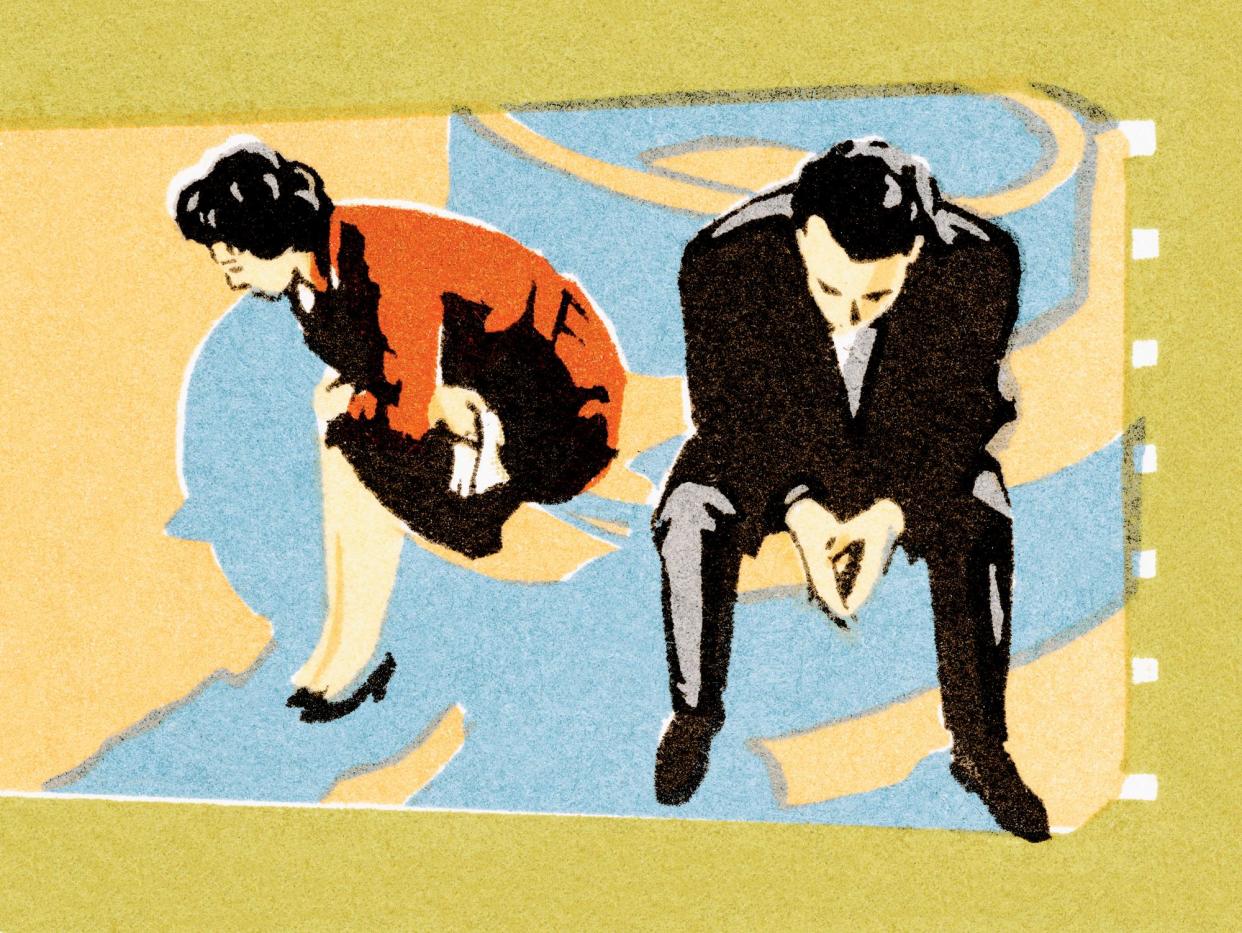Does an unhappy partner make you less happy?

When I meet a friend’s new partner for the first time, I desperately want to like them. I hope they’re generally pleasant to be around – not just for my sake, but for my friend’s. When people date someone who is miserable, it can rub off on them. Maybe you have had that happy-go-lucky, upbeat friend who starts dating a grump, and gradually, they become an Eeyore too.
Research shows that people often become similar to who they spend a lot of time with. Even strangers tend to mimic each other’s movements and expressions, and studies have shown that friends, strangers and lovers’ heartbeats or brain waves often sync up. In romantic couples, a number of studies have shown that they have similar wellbeing, both when they first start dating and also over time.
Related: Divorce doulas: ‘like having that best friend you’ve always wanted, but you’re paying for’
“Convergence has been shown for different characteristics like personality, lifestyle, daily activities, sports, nutrition, leisure and also wellbeing,” said Olga Stavrova, a professor psychology at the University of Lübeck. So if two people date and become more similar to each other, who becomes more like who? In a recent paper co-authored by Stavrova, published in Social Psychological and Personality Science, she went after this very question. She said she wanted to understand if the happier person in a couple is “dragged down” or if the unhappier person is “lifted up”.
She looked at data from more than 20,000 German and Dutch couples who were followed for 37 and 14 years respectively, focusing only on couples that differed in wellbeing at the beginning of their relationships. Within each partnership, if one person started out saying they had higher wellbeing and life satisfaction than the other, they experienced declines in their wellbeing over time. The person with lower wellbeing might experience a small increase in happiness, but often didn’t improve at all. And the dip that the satisfied person experienced was always greater than any improvement in the unsatisfied person.
Stavrova said the findings probably stem from the types of interactions that couples have over time. You share what happens in your day, and how you feel, with your partner. If one person is always negative, it can bring the other one down. In another study, when researchers followed couples over a few weeks, they found that negative emotions are more commonly passed back and forth, compared with positive ones.
“The idea that we soak up inputs from the people that we spend our time with is important to understanding how relationships shape health and wellbeing across the lifespan,” said Darby Saxbe, a clinical psychologist and professor of psychology at the University of Southern California, who wasn’t involved in the new study.
But the findings don’t necessarily mean you should avoid people who seem slightly on the unhappy side. You don’t need to find a partner who is super gleeful all the time, or feel worried about dragging others down. “I would be reluctant to say, ‘Don’t couple up with someone who’s a downer,’” Saxbe said.
Couples can either help each other get back to baseline, or they can drive each other beyond baseline
Darby Saxbe
The interplay of long-term relationships and wellbeing is more complicated than just this one factor. A large body of work consistently finds that close relationships make people healthier across our lifespans. If we were consistently affected by less happy partners, there wouldn’t be so much evidence that relationships are overall beneficial.
Saxbe, who trained as a couples therapist, said that the way that couples affect each other’s mood can vary. If one partner comes home from work each day upset, Saxbe has seen toxic stress contagion happen: the other person is drawn into a negative emotional state. But if a couple has a healthy emotional dynamic, one partner can help to calm the other down, and they can co-regulate together. “Couples can either help each other get back to baseline, or they can drive each other beyond baseline,” she said.
Happiness is not the only thing that matters in relationships. For example, parents often report low moods and low wellbeing when they’re with their children, but when you ask them if they are happy they had children, they still say yes. “Your momentary mood is just one proxy for your wellbeing,” Saxbe said.
Related: People say you’ll know – but will I regret not having children?
Stavrova said that despite her team’s findings sounding bleak, she can’t comment on whether this convergence is always a bad thing, even when one partner’s wellbeing decreases. Having similar traits or behaviors to your partner can lead to more relationship stability; when people have high satisfaction gaps in their first year of marriage, it increases the chances of them getting divorced later.
You don’t have to choose to date someone who is sunny all the time, but you should be aware that they will probably affect you over time. You’re making sense of the world together, with its ups and downs, Stavrova said. Having a partner with a resilient temperament is probably going to matter more for quality of life.
“It’s not so much, do you never experience dips in wellbeing, or do you not encounter frustrations,” Saxbe said. “What’s more important is: how do you recover?”

